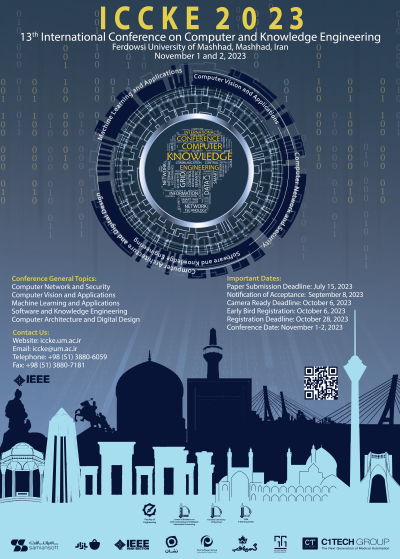0% Complete

Authors :
Keywords :
Abstract :
List of archived papers
Mir Mahdi Safari - Jafar Pourrostam - Behzad Mozaffari Tazehkand
Poonia Taheri Makhsoos - Behnam Bahrak - Fattaneh Taghiyareh
Amirhossein Tighkhorshid - Yasamin Borhani - Javad Khoramdel - Esmaeil Najafi
Negin Mashayekhi - Mohammad Reza Reshadinezhad - Shekoofeh Moghimi
Farhad Abedinzadeh Torghabeh - Yeganeh Modaresnia - Seyyed Abed Hosseini
Mohammad Rabbani bidgoli - Saber Ziaei
Javad Dogani - Farshad Khunjush
Mehdi Zirak - Yasser Sedaghat - Mohammad Hossein Yaghmaee Moghaddam
Rahele Mohammadi - Mahmoud Naghibzadeh - Abdorreza Savadi
Fatemeh Ahouz - Ebrahim Sayahi




